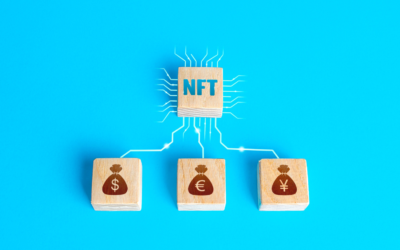This guide is to help anyone who wants to write great content – whether that’s on social media, your website, in a blog, or on the back of a public toilet door. Though we don’t condone that last one!
To start, you need to understand that good writing has three essential elements:
- It’s clear – A clear and concise message is the foundation for good writing and ensures there is no confusion about what you mean.
- It’s relevant – Keep your writing relevant to the topic so your audience can understand your message quickly and efficiently.
- It’s focused – Many of your audiences won’t have the time to read everything you write and they may simply scan for the most important points. Short, consistent messages create connections. Long slabs of text can be intimidating. If you lose focus writing it, your audience will lose attention reading it!
Read your writing aloud. If it doesn’t feel or sound like it flows, it probably needs to be reworked.
Know thy audience
When writing, it’s important to take a moment to think about your audience. Think about who they are, what they already know and what new info you can bring them. Consider these questions:
- Are they local or global? Do they know where Geelong and The Bellarine is for example?
- Are you talking to locals, interstates or internationals? Will your audience be connected to local friends
- and families?
- Your writing should reflect the emotional and social rhythms of the year. Is it seasonally relevant? Connected to culture? Reflective of key dates in the calendar.
Power your language
Make your writing more powerful by considering the following points:
- Write short, concise sentences. Don’t cram too much information into one sentence.
- Active, not passive. Your message will be more compelling if you use active verbs in sentences. (Instead of saying ‘the free event put on by XXXX’, say ‘XXXX’s free event’.)
Address your audiences
Always refer to audiences as “you”. By speaking directly to your audience, it helps to humanise your content and message.
Keep it fresh
Avoid overused jargon and especially clichés. Keep it fresh and minimise industry-speak wherever possible. Only use industry-standard terminology when you think it will help improve your audience’s understanding.
Write like a human
Always be looking to make your writing relatable. Put yourself in the audience’s shoes, and don’t patronise them. Remember that they are busy and have competing priorities, so make sure you’re not just dumping information but are communicating with them.
Write for all types of readers
Some people will read everything you write. Others will just scan and scroll it. Help everyone read better by grouping related ideas together and using descriptive headers and subheaders. Create a hierarchy of information.
Simple is always better
Keep your language simple. Aim for a Flesch-Kincaid (the standard measure for readability) grade 8 reading level. This is similar to most online writing, social media and the Harry Potter books! This isn’t about dumbing content down. We just need to make sure our language is straightforward and communicates concepts as efficiently as possible. Plus, our audiences are from all over the world and some may not speak English as their first language.
Focus on the ‘why’
Make it clear to your audiences what they’ll gain from your experience – what will be the emotional or functional benefits.
Add the wink
Put some fun into your content wherever you can. Find the quirk or add a wink to engage your audiences – this is your chance to use those creative writing skills. Have fun with it!
TL;DR?
› Know your audience and where they are in the world.
› Write to another human, as a human and not as a corporate entity.
› Use story to illustrate your offer.
› Write short sentences (no more than 15–20 words).
› Read your content out loud and if it doesn’t sound like the Greater Than brand, rewrite it.
› Start with the Why? Tell the audience what is in it for them upfront.
› Keep it easy for people to read by structuring your ideas.
› Minimise the use of complex language.
› Use headings and bullets to make your content easier to scan.
› Edit unnecessary or repeated words.
› Have some fun with your writing; it will make it more fun to read.
This guide has been adopted from our Greater Than Brand Atlas. Find other handy guides and resources on our training page.



